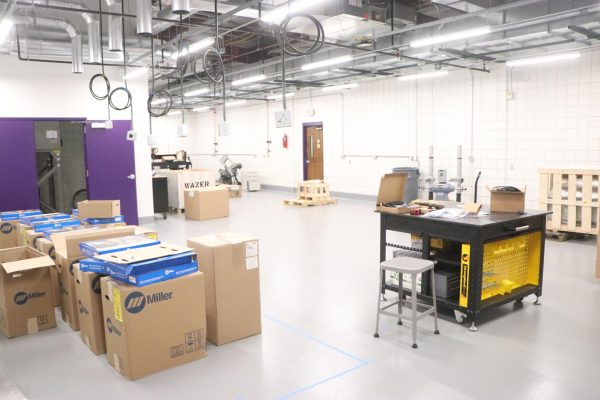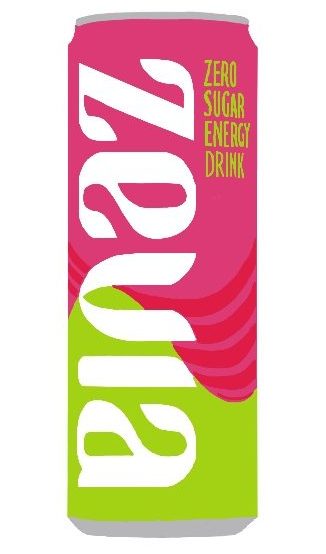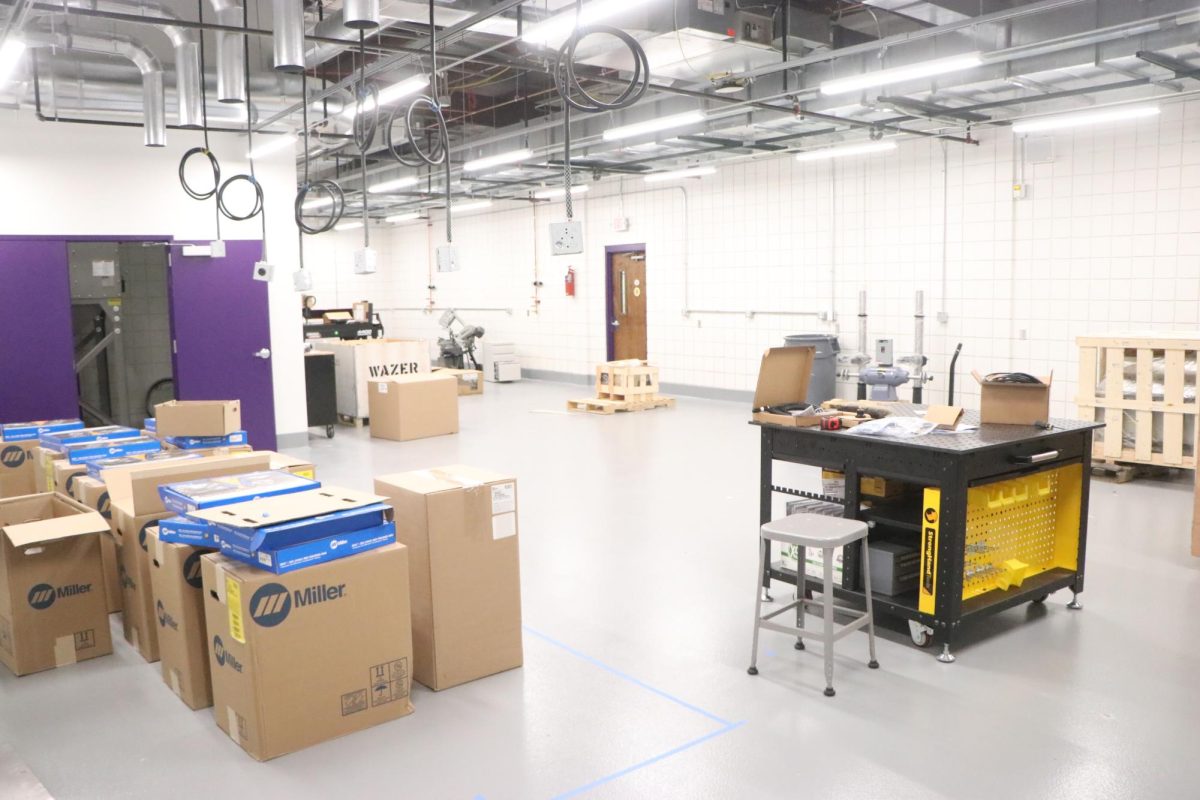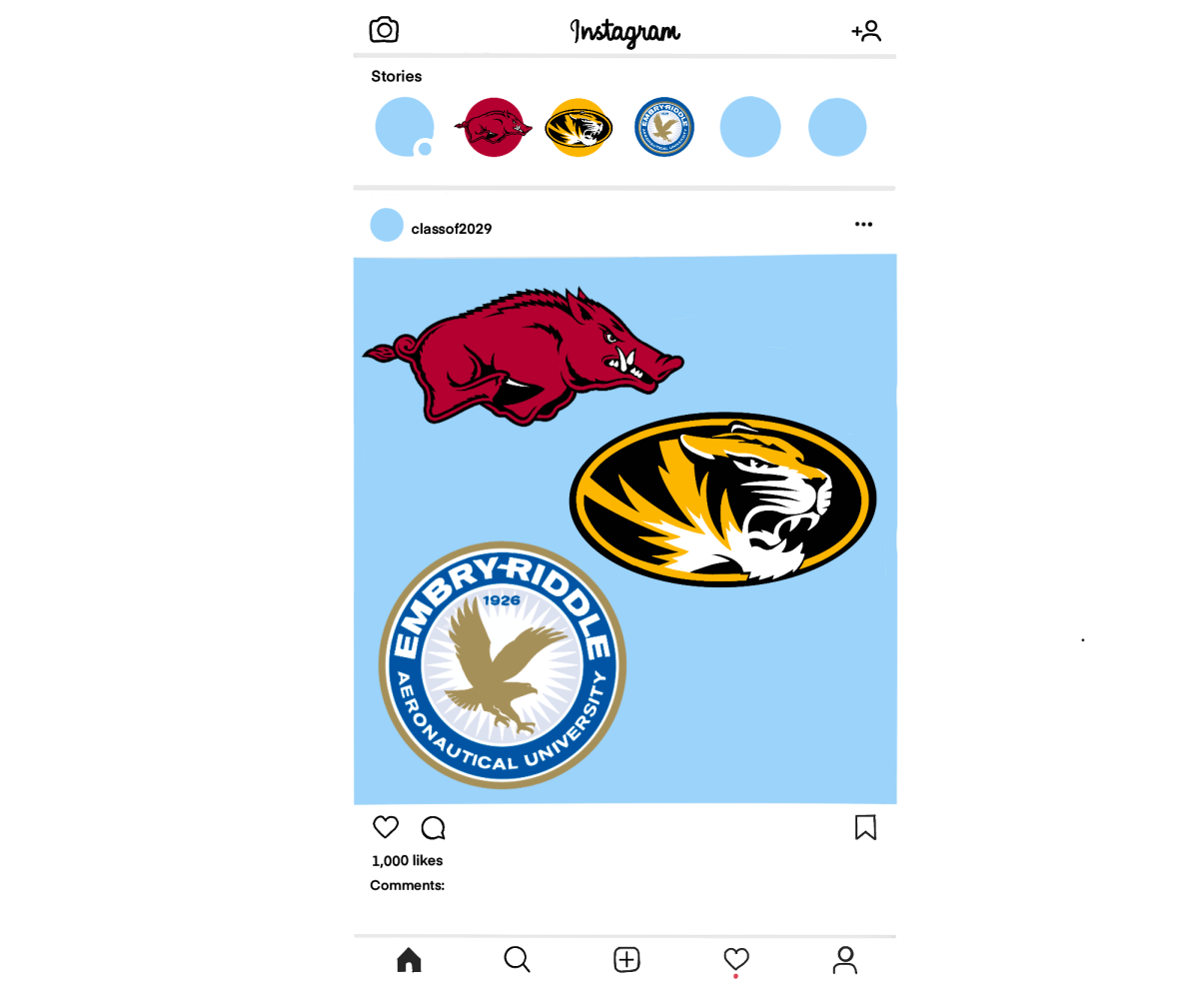
Graduate high school ready to enter the workforce certified to weld and start your career debt free. This could be a possibility in the future according to Metals and Wood Processing teachers Tom Beckmeyer and Benjamin Ferrell.
These classes have been taught out of the same space, but are developing solutions to add new space arrangements.
“We’ll have a dedicated space for woods and metals separate that will allow potentially more hours to be offered,” Beckmeyer said. “And then also it maintains the longevity of our tools because we’re not worrying about sawdust on our metal working and metal shavings in our woods room.”
Currently, only Metals Processing is offered at EHS, and students can only take this class one time. Teachers and district officials are looking to change this.
“We’re trying to bring in an advanced metals class of some sort,” Beckmeyer said.
He hopes that after taking advanced metals, students will walk away with a basic welding certificate from the American Welding Society.
“Students will have a certification, hopefully, that they can take out,” Ferrell said. “And whenever you go to a trade school or a company or things like that, you can say, hey, I already have this certification. I’ve already passed all these welds or all this whatever. And that way you can already say, hey, I’ve got this experience over any other candidate.”
Although some students pursue a college education after high school, that is not the only option. Fisher Skaggs, junior, is currently enrolled at South Tech and plans on joining a welders union after graduation.
“Kids who go to South Tech graduate with a high school diploma, and you get a certification in whatever field you’re doing, which is really helpful. You don’t have to do college. You can just have that job right when you come out,” Skaggs said,“But if you want to make bigger bucks, bigger anything, travel, you can more than likely go further in that trade as well.”
At South Tech, students learn about local opportunities to join a union in Mo. and explore potential future employment options, such as at Boeing or Ameren, Skaggs said. Now with two classrooms and hopefully an advanced metals class, new tools and machines were purchased, hoping to open up doors for new opportunities and skills.
“Twelve brand new welders. They’re three in one welders, so we can mig, tig, and stick weld. Then we have two new drill presses. We’ll have two new grinders and a wire wheel buffer,” Beckmeyer said. “A brand new plasma cutter, brand new band saw. We got a water plasma, it’s a water jet, which does the same thing. But we can cut a lot more materials with it, like aluminum and ceramics and acrylics and those types of things.”
The metals workshop is not structured like a traditional classroom with rows of desks and paper handouts; instead their standards are career focused and project based.
“Showing up on time, working well in groups, we apply all that stuff into our teaching,” Beckmeyer said. “I show and then they do. And then in their next project, they try to implement what we did on the first project.”
Beckmeyer and Ferrell are hoping to continue seeing students enrolling in material processing classes.
“If you’re taking a bunch of math classes and science classes, and all your classes are really rigorous, hard, and difficult, a hands on class can help balance that,” Ferrell said. “Taking a little bit of time to come to the shop and not play, but work with your hands and use a different part of your brain that’s not being used while you’re sitting at a desk doing math homework.”
From a student’s perspective, Skaggs agrees.
“I would suggest kids look into these classes. Everyone, of course, is different, but if you love making stuff, getting your hands on stuff, definitely take a woods or metals class,” Skaggs said.

















